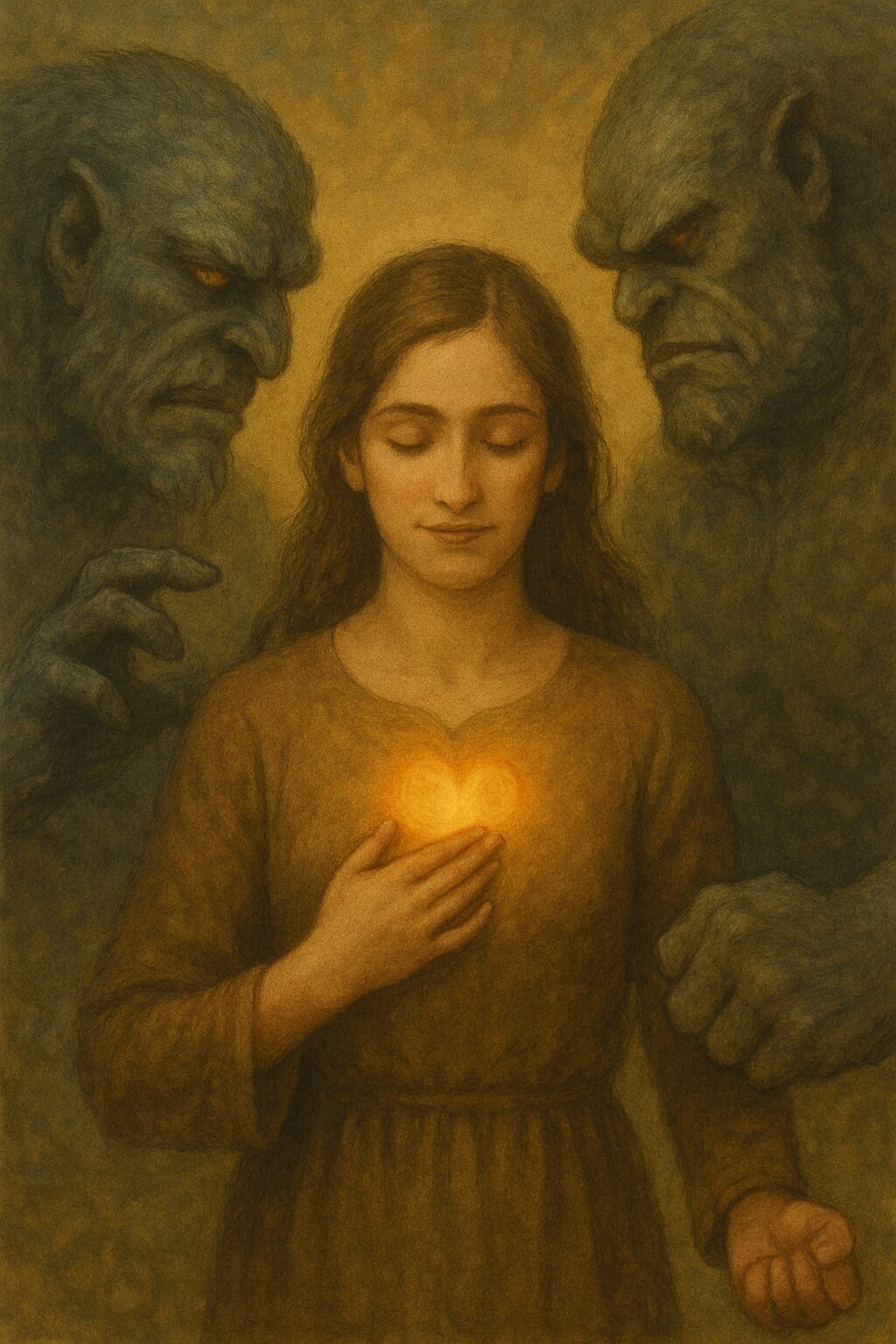Find love in yourself,
And when you meet
The hungry giants of evil,
Feed them from your heart.
Witness the fight
Of success and failure,
Of life and death.
You’ll find only one hero-
And the other does not exist.
Filed under: 🜁 Self – tracing the inner landscapes of thought, feeling, and becoming.

